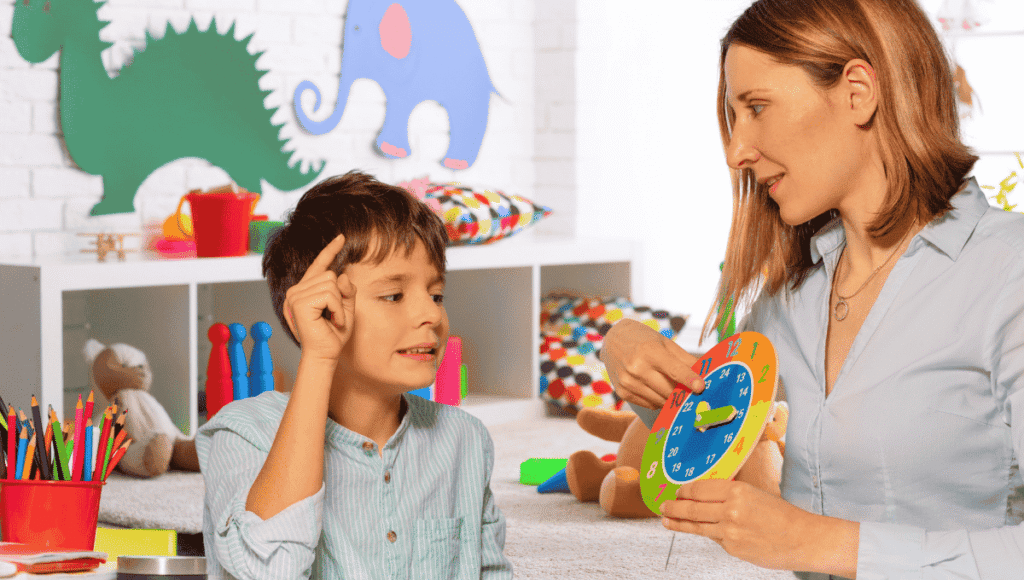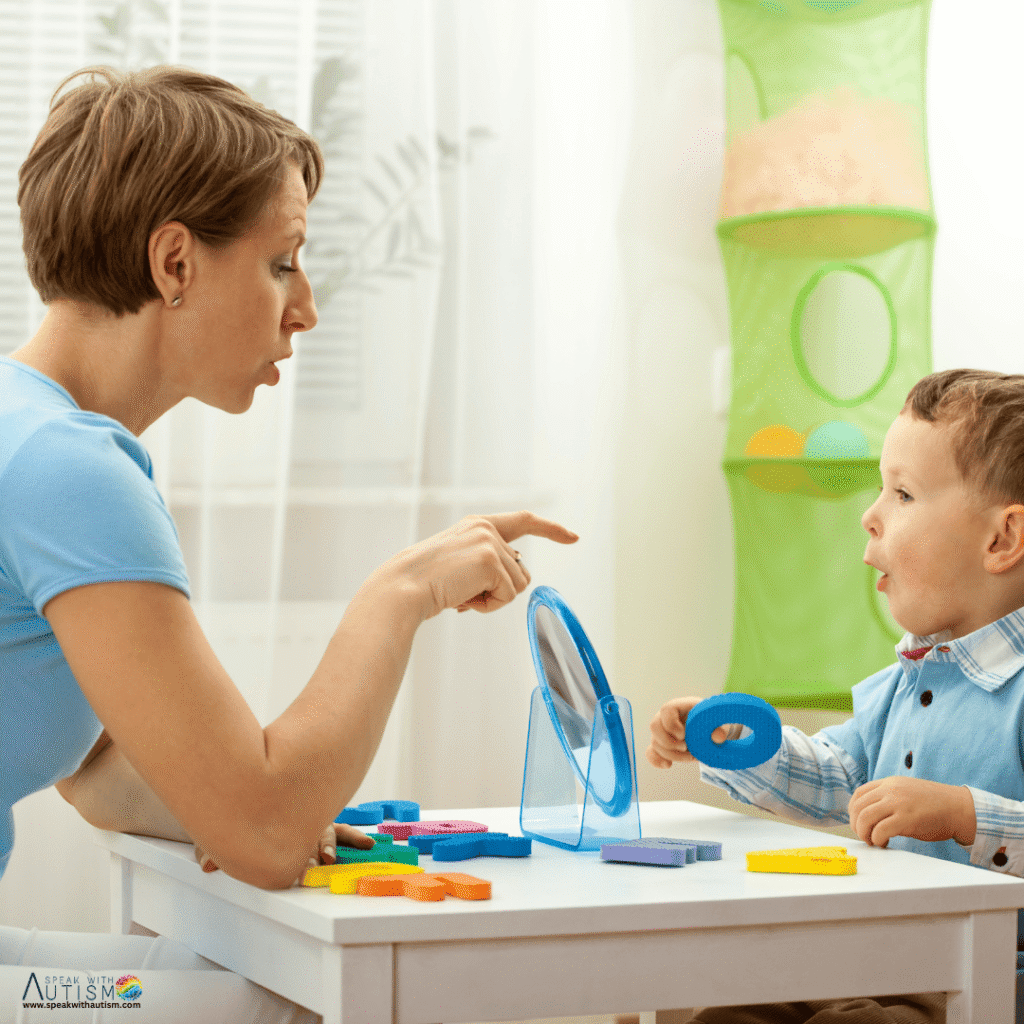Activities to Improve Speech in Kids: Is your child facing challenges with speech? Do you want to support their communication development right from home? You’re in the right place! In this blog, we’ve compiled 25 simple and effective speech therapy activities that are not just beneficial but also enjoyable for children. From pronunciation practice to language games, these activities make learning fun.
Table of Contents
🗣️ 25 Easy and Fun Activities to Improve Speech in Kids
🎯 1. Pronunciation Activities

These activities help children articulate sounds correctly and become more aware of how words are formed.
- Mirror Practice
Stand in front of a mirror and say words slowly. Watch how the lips and tongue move. - Tongue Twisters
Practice fun ones like “kacha papad, pakka papad” or “She sells seashells”. - Syllable Clapping
Break down words and clap out each syllable. E.g., “ba-na-na” = 3 claps. - Blow the Candle
Practice speech sounds like “p”, “b”, “t” while trying to blow out a candle from a distance. - Repeat After Me
Say simple words like “maa”, “papa” and have the child repeat them clearly.

💨 2. Breathing & Voice Activities
Proper breathing and voice control are essential for clear speech.

- Deep Breathing
Inhale deeply and make sounds like “aaaaa…” or “oooo…” for several seconds. - Make Bubbles
Blow soap bubbles to practice breath control in a playful way. - Straw Exercise
Use a straw to blow bubbles into water—first slowly, then quickly. - Humming
Humming “hmmm” at different pitches helps control voice and vibration. - Counting Breath
Try counting from 1 to 10 in one breath. Gradually increase as the child improves.
🗣️ 3. Fluency Activities
These help in maintaining rhythm and flow while speaking.
- Slow Reading
Read a simple paragraph slowly, emphasizing each word. - Sing a Song
Sing familiar rhymes like “Twinkle Twinkle” to build fluency. - Pause Practice
Practice pausing: “I am going to… school…” This improves pacing. - Word Repetition
Say a word multiple times: “Water, water, water…” to build familiarity. - Repeating a Story
Tell a short story and ask the child to retell it in their own words.
📚 4. Vocabulary & Language Skills
These games build word knowledge and sentence formation.

- Naming Game
Ask the child to name everyday items like “bottle”, “fan”, “phone”. - Picture Description
Show a picture and encourage the child to describe what they see. - Opposites Game
Say a word and ask for its opposite: “hot–cold”, “big–small”. - Category Game
Pick a category (e.g., fruits) and name five things in it. - Question-Answer
Ask simple questions: “What is your name?”, “What are you eating?”
👂 5. Listening & Response Activities
These activities sharpen listening skills and response time.
- Sound Hunt
Listen for and identify sounds in the environment: “Can you hear the fan?” - Follow Directions
Give basic instructions like “Pick up the toy” or “Touch your nose”. - Clap on Word
While telling a story, choose a word to clap on every time it is heard. - Echo Game
Say a word or sentence and have the child repeat it with the same tone. - Rhythm Tapping
Tap a rhythm on the table and have the child mimic the tapping while speaking.
🙌 Helpful Tips for Parents

- Practice each activity for 5–10 minutes a day.
- Mix activities regularly to keep your child interested.
- Make it playful—turn exercises into games.
- Always encourage and praise efforts, not just results.
Speech development takes time, and every child progresses at their own pace. These activities can be a powerful supplement to professional speech therapy or a great start for early speech practice at home.
Frequently Asked Questions (FAQ’s)
Can I do these activities at home without a speech therapist?
Yes! These activities are designed for home practice. However, if your child has significant speech delays, consulting a speech-language pathologist is highly recommended.
How much time should I spend on Speech activities daily?
Spend about 5–10 minutes per activity. You can choose 2–3 activities per day and rotate them to keep it fun and engaging.
What if my child refuses to participate in speech activities?
Make the activities playful and treat them like games. Use praise and small rewards to motivate your child. Avoid forcing them—keep it light and positive.
Do these speech activities replace professional therapy?
No. These are supportive and supplementary activities. For children with speech disorders, professional guidance is crucial.
How do I know if my child needs speech therapy?
If your child has trouble being understood, avoids speaking, or doesn’t meet age-based speech milestones, it’s best to get a professional evaluation.
Can these speech activities be done in groups or with siblings?
Absolutely! Group play can be a fun and social way to improve speech and language skills. Just ensure each child gets individual speaking time.
